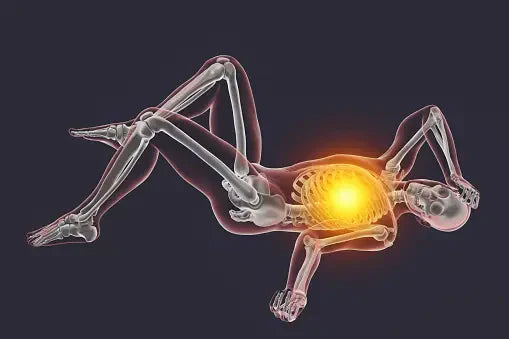

Calcium Content Not Protein Suppresses Appetite
Table of Contents
Calcium Content Not Protein Suppresses Appetite
Anyone that has ever been on a Atkins diet knows that high protein diets seems to kill the appetite. “People on the Atkins diet don’t feel as hungry — that’s how it works.” Eating a high-protein diet can boost the release of a hunger-suppressing hormones. A diet rich in protein may be a good way to lose weight and keep it off. What’s more, high-protein diets have been shown to enhance fat loss. Previous research has reported that whey protein shakes enhance fat loss. The discovery boosts the theory that eating more protein might help to reduce appetite and lead to sustained weight loss. The discovery may also shed light on how the notorious Atkins diet, which ditches carbohydrates in favour of protein and saturated fats, might work. New research has just been published which suggests its not the amount of protein, but rather the amount of calcium in the food that causes appetite suppression.
 In 2009, researchers found that calcium and Vitamin D enhanced weight loss. The study, which followed 63 overweight or obese women, found that those who took a calcium-plus-vitamin-D supplement in addition to a lower-calorie diet lost no more body fat over 15 weeks than those given a placebo. When the researchers looked at only those women with a very low calcium intake before the study, the supplement did seem to have a benefit. Among the women — who had been getting less than 600 milligrams of calcium per day — the calcium/vitamin D supplement spurred greater reductions in weight and body fat. While the reason for the benefit is unclear, there was evidence that the supplement helped curb women’s appetite for fatty food, the researchers report in the British Journal of Nutrition. During a buffet-style test meal, the study found, women who’d been taking the supplement ate less fat than they had at a test meal done at the study’s start. The same was not true of women in the placebo group, however. “Our hypothesis is that the brain can detect the lack of calcium and seeks to compensate by spurring food intake, which obviously works against the goals of any weight loss program” senior researcher Dr. Angelo Tremblay, of Laval University in Quebec, Canada, said in a news release from the university. “Sufficient calcium intake seems to stifle the desire to eat more,” he explained. While the results from the test meals suggest that extra calcium may help calcium-deficient women curb their appetites while dieting. In 2009, researchers found that calcium and Vitamin D enhanced weight loss. The study, which followed 63 overweight or obese women, found that those who took a calcium-plus-vitamin-D supplement in addition to a lower-calorie diet lost no more body fat over 15 weeks than those given a placebo. When the researchers looked at only those women with a very low calcium intake before the study, the supplement did seem to have a benefit. Among the women — who had been getting less than 600 milligrams of calcium per day — the calcium/vitamin D supplement spurred greater reductions in weight and body fat. While the reason for the benefit is unclear, there was evidence that the supplement helped curb women’s appetite for fatty food, the researchers report in the British Journal of Nutrition. During a buffet-style test meal, the study found, women who’d been taking the supplement ate less fat than they had at a test meal done at the study’s start. The same was not true of women in the placebo group, however. “Our hypothesis is that the brain can detect the lack of calcium and seeks to compensate by spurring food intake, which obviously works against the goals of any weight loss program” senior researcher Dr. Angelo Tremblay, of Laval University in Quebec, Canada, said in a news release from the university. “Sufficient calcium intake seems to stifle the desire to eat more,” he explained. While the results from the test meals suggest that extra calcium may help calcium-deficient women curb their appetites while dieting. |
Prior evidence suggests that high-calcium intake influences post-meal appetite. A new study this month was designed to assess energy intake compensation in response to protein and calcium ingestion. The researchers wanted to determine if it was the high protein or the calcium that was influencing meal appetite. A “pre-load meal” was served and food intake was then assessed (60 min after preload ingestion) by providing participants with a homogenous pasta meal, which they were asked to consume until “comfortably full.”
 Study description: The trial was randomized, controlled, double-blind and performed in a cross-over manner with a 48-h washout period. Twenty healthy adults (13 men, 7 women) were asked to consume one of the following preloads:
Study description: The trial was randomized, controlled, double-blind and performed in a cross-over manner with a 48-h washout period. Twenty healthy adults (13 men, 7 women) were asked to consume one of the following preloads:
- a low-calcium (104 mg) and low-protein (4 g) control preload (control),
- a high-protein preload (29 g),
- a high-calcium preload (1170 mg), or
- a high-protein and high-calcium preload.
Subjective measures of appetite were also assessed. All preloads contained instant porridge oats and water to provide 0.5 g carbohydrate/kg body mass. These were cooked in a microwave for 2 min at 1000 W and cooled for 5 min before being served.
- For CAL trials, a milk-extracted calcium powder was added to the porridge to increase the calcium content by 15 mg/kg body mass.
- For PRO trials, milk protein concentrate was added to increase the protein content of the porridge by 0.35 g/kg body mass.
Study results: The calcium preload meal had the greatest impact on reducing appetite. According to these results it’s the calcium content and not, as scientists have previously suspected the high protein content of many high calcium foods that affects the appetite and – more importantly – leads to relatively lower food intakes on subsequent meal.
| Major GC, Alarie FP, Doré J, Tremblay A. Calcium plus vitamin D supplementation and fat mass loss in female very low-calcium consumers: potential link with a calcium-specific appetite control. Br J Nutr. 2009 Mar;101(5):659-63. |
Gonzalez, Javier T., et al. “Calcium Ingestion Suppresses Appetite and Produces Acute Overcompensation of Energy Intake Independent of Protein in Healthy Adults.” The Journal of Nutrition (2015): jn-114.

















